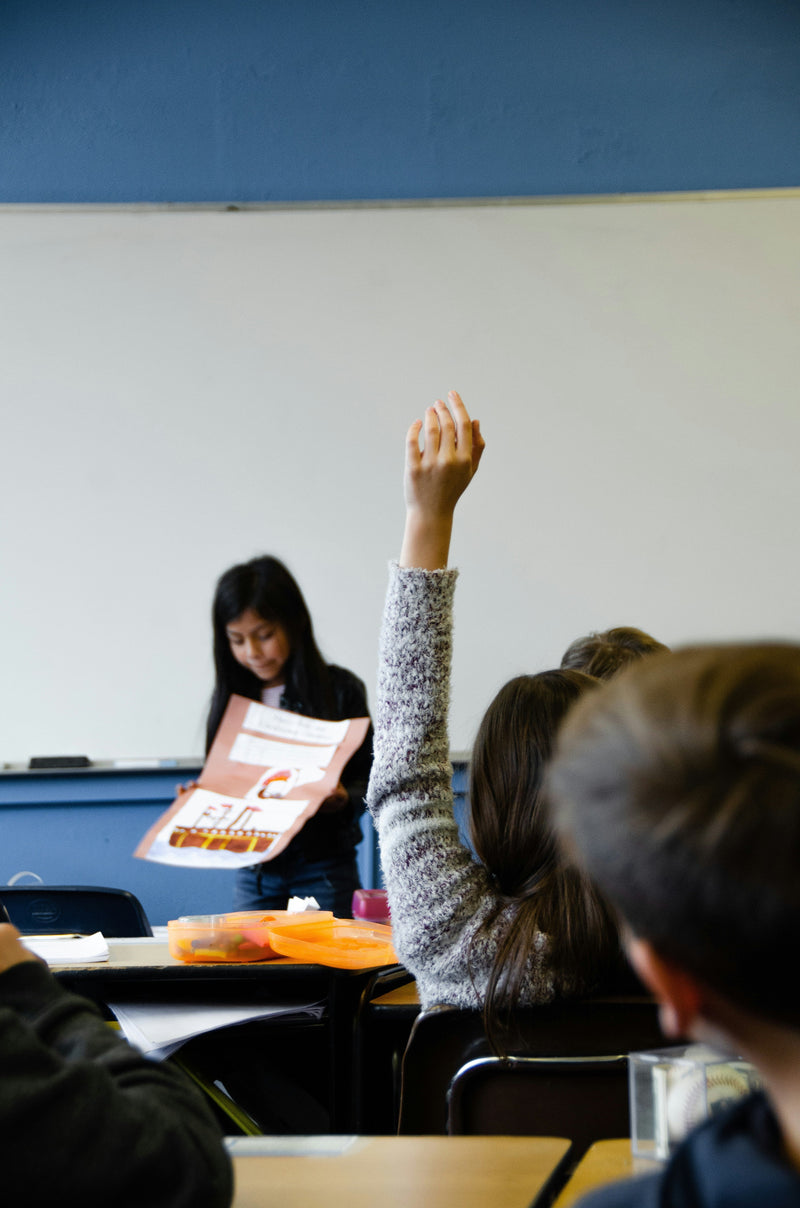
The Brain Hack That Changes Everything: Teaching Children to Coach Themselves with "You" ✨🧠
Picture this: Your six-year-old stands at the edge of the diving board for the first time, trembling with a mix of excitement and fear. Instead of hearing them mutter "I can't do this," imagine if they naturally said to themselves, "You've got this! You learned to ride a bike, remember? You can learn this too!" That simple shift from "I" to "you" isn't just cute kid talk—it's actually a powerful brain hack that neuroscientist Andrew Huberman says can transform how we approach challenges. And when we teach this to our children early, we're giving them a superpower for life. 🏊♀️💪
The Neuroscience of Self-Talk: Why "You" Beats "I" Every Time 🧠⚡
Dr. Andrew Huberman, renowned neuroscientist and host of the Huberman Lab podcast, has shed fascinating light on how the brain responds differently to first-person versus second-person self-talk. When we use "I" statements ("I can do this"), we're activating the same neural circuits involved in anxiety and self-criticism. But when we shift to "you" ("You can do this"), something remarkable happens:
- The brain activates regions associated with emotional regulation 🎭
- Stress responses diminish more quickly ⬇️😰
- Problem-solving capabilities increase 🧩💡
- Performance under pressure improves 🎯🚀
- Self-compassion naturally increases ❤️
This isn't just theory—it's backed by solid neuroscience research. When children learn to coach themselves using "you" instead of "I," they're literally rewiring their brains for greater resilience and success.
The Confident Mindset Journal incorporates this powerful self-coaching technique through prompts that help children develop this beneficial internal dialogue naturally. 📔✨
Carol Dweck's Revolutionary Mindset Research: The Foundation for Growth 🌱🔬
Dr. Carol Dweck's groundbreaking work on growth versus fixed mindset provides the perfect foundation for understanding why the way children talk to themselves matters so much. Her research reveals that children who believe their abilities can grow through effort and learning (growth mindset) vastly outperform those who believe their abilities are fixed traits (fixed mindset).
Fixed Mindset Internal Voice:
- "I'm not good at math" (defines ability as permanent) 🚫
- "I failed that test because I'm dumb" (attributes outcomes to innate traits) 📊
- "I should stick to things I'm already good at" (avoids challenges) 🛑
Growth Mindset Internal Voice:
- "I'm not good at math yet" (sees potential for improvement) ✅
- "I can learn from this mistake" (views challenges as opportunities) 🌱
- "Hard things help my brain grow stronger" (embraces difficulty) 💪
When we combine Dweck's mindset research with Huberman's self-talk findings, we get a powerful formula for building resilient, capable children.
The stories in the My Furry Soulmates series beautifully model this growth mindset approach, showing young characters who face challenges with curiosity and persistence rather than fear and avoidance. 📚🦊
What Healthy Internal Dialogue Sounds Like in Children 👂🌟
Before diving into practical strategies, let's recognize what positive self-coaching sounds like when children naturally develop these skills:
Healthy "You" Self-Talk:
- "You made a mistake, but you can fix it!" 🔧
- "You're feeling nervous, and that's okay—you can be brave anyway" 🦁
- "You practiced hard, so you're ready for this" 🎯
- "You've solved problems before, you can figure this out too" 🧠
- "You're learning something new—your brain is growing!" 🌱
Unhealthy "I" Self-Talk to Watch For:
- "I always mess things up" 😰
- "I'm not as smart as everyone else" 📉
- "I should give up—I can't do it" 🏳️
- "I hate myself when I make mistakes" 😡
- "I'm just not good at this" 🚫
The Curiosity Mindset Journal helps children develop this positive inner voice through structured reflection that naturally incorporates growth mindset principles. 🔍✨
The Perfect Storm: Why Early Childhood is Prime Time for Mindset Development 🌪️⏰
The intersection of Huberman's neuroscience findings and Dweck's mindset research becomes even more powerful when we consider the unique developmental window of early childhood (ages 2-8):
- Neuroplasticity is at its peak 🧠🔥
- Core beliefs about ability are forming 💭🌱
- Self-talk patterns are being established 🗣️📝
- Emotional regulation systems are developing 😊😢🧘♀️
- Response to challenge is becoming habitual ⛰️🏃♀️
During these crucial years, children are essentially programming their internal operating system. The self-talk patterns they develop now will become their default throughout life.
The Confident Mindset Journal provides age-appropriate prompts that help children naturally develop positive "you" self-talk while building growth mindset thinking patterns. 📝💫
Practical Strategies: Teaching the "You" Advantage 🛠️🎯
Want to help your children develop this powerful self-coaching ability? Here are research-backed strategies that work:
Model Second-Person Self-Talk 🪞
When facing your own challenges, narrate your "you" self-talk out loud: "You can figure this out. You've handled tough problems before."
Introduce the "Best Friend" Technique 👫
Ask: "What would you tell your best friend if they were struggling with this?" Children naturally use kinder, more encouraging "you" language with others.
Practice the "Future You" Conversation 🔮
Help children imagine talking to themselves one year from now: "What would future you want you to know about this challenge?"
Create Personalized Mantras 📿
Work together to develop "you" statements: "You are learning every day" or "You can handle hard things."
Use Bedtime Reflection 🌙
Before sleep, ask: "What would you tell someone who had your same day tomorrow?"
Implement the "Coach Voice" Exercise 🎤
Encourage children to speak to themselves like a supportive coach would—using encouraging "you" statements.
Journal with Intention ✍️
The Confident Mindset Journal includes specific prompts that naturally guide children toward effective "you" self-talk patterns.
The Growth Mindset-Self-Talk Connection: A Powerful Partnership 🤝🚀
When we combine Dweck's growth mindset principles with Huberman's self-talk research, we create an incredibly powerful approach:
Fixed Mindset + "I" Talk = Stuck "I'm bad at this" → Avoidance and giving up 🚫
Growth Mindset + "You" Talk = Thriving "You haven't learned this skill yet, but you can!" → Persistence and improvement ✅
The Kindness Mindset Journal helps children develop the self-compassion necessary for this positive self-talk while they're building growth mindset thinking. 💕📔
Common Mindset Traps: What Undermines Healthy Self-Talk 🚩⚠️
Despite our best intentions, certain approaches can accidentally sabotage children's developing mindset and self-talk patterns:
The Talent Trap 🎭
Praising children for being "naturally gifted" or "so smart" creates fixed mindset thinking and pressure to maintain an image.
The Protection Paradox 🛡️
Shielding children from all challenges prevents them from developing the internal resources to coach themselves through difficulties.
The Comparison Culture 📊
Constantly measuring against others creates "I'm not as good as..." internal dialogue instead of "You're improving" focus.
The Perfection Pressure ✨
Expecting flawless performance teaches children that mistakes mean something's wrong with them rather than that learning is happening.
The Crisis Intervention 🚨
Always rushing in to solve problems for children prevents them from developing their own problem-solving self-talk.
The structured activities in the Confident Mindset Journal help counteract these traps by encouraging children to celebrate effort, embrace challenges, and develop resilient self-talk patterns. 📓🌱
Real-World Applications: Where This Makes a Difference 🌍💡
The combination of growth mindset and effective self-talk shows up in countless childhood situations:
Academic Challenges 📚 Instead of: "I'm terrible at reading" Coach yourself: "You're still learning to read. Each book makes you stronger!"
Social Situations 👫 Instead of: "I'm shy and weird" Coach yourself: "You feel nervous meeting new people, and that's normal. You can take it one conversation at a time."
Sports and Activities ⚽ Instead of: "I'm not athletic" Coach yourself: "You're building your coordination and strength. Every practice helps you improve!"
Creative Pursuits 🎨 Instead of: "I'm not artistic" Coach yourself: "You're exploring your creativity. Each drawing teaches you something new!"
The Ripple Effect: How Mindset Impacts Everything 🌊✨
When children develop healthy mindset and self-talk patterns early, the benefits extend far beyond childhood:
- Academic resilience: Students bounce back from setbacks more quickly 📈
- Social confidence: Children navigate friendships with greater ease 👭
- Emotional regulation: Stress and anxiety become more manageable 🧘♀️
- Innovation potential: Willingness to risk failure leads to creative breakthroughs 💡
- Leadership skills: Self-coaching ability translates to coaching others effectively 👑
By using tools like the Confident Mindset Journal, Curiosity Mindset Journal, Kindness Mindset Journal, and the stories in the My Furry Soulmates series, we provide children with the scaffolding to develop these essential life skills during their most formative period. 📚🧱
Starting Today: Simple Steps for Mindset Development 👣🌱
Building healthy mindset and self-talk doesn't require complicated interventions. Start with these simple approaches:
- Notice and gently redirect "I can't" to "You haven't learned this yet" 🔄
- Share stories of your own learning process using "you" self-talk 📖
- Ask "How would you encourage a friend facing this challenge?" 💭
- Create family mantras using "you" language 📿
- Establish reflection routines that focus on growth and effort 🌱
- Use journaling with the Confident Mindset Journal to practice positive self-coaching 📝
Join Our Mindset Revolution! 💬🚀
How have you seen the power of mindset and self-talk in the children in your life? What strategies have you found most effective? Share your experiences in the comments below!
Remember: When we teach children to coach themselves with kindness and growth-oriented "you" language, we're not just improving their self-talk—we're literally rewiring their brains for resilience, learning, and success. Drawing from the cutting-edge research of neuroscientists like Andrew Huberman and psychologists like Carol Dweck, we can give our children tools that will serve them throughout their lives. In a world that demands adaptability and emotional intelligence, there may be no greater gift than teaching our children to be their own best coaches. ✨🧠💪



0 comments